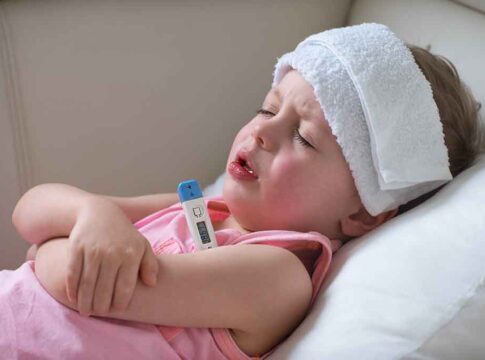Texas reports the first locally transmitted dengue fever case in 2024. The disease’s domestic spread and potential impact on public health have raised concerns. Cameron County, Texas, reports its first locally acquired dengue case. Texas reports 106 travel-associated dengue cases in 2024, the highest number since 2002.
Texas Faces Dengue Fever Threat
Texas public health officials have announced that the state will see its first locally acquired case of dengue fever in 2024. Cameron County, on the Texas-Mexico border, has a population of around 425,000 people. This development has raised concerns about the disease’s potential for further domestic spread, which is usually associated with tropical and subtropical areas.
In addition to the locally transmitted case, Texas has reported 106 travel-associated dengue cases this year, the most since 2002. One of these cases resulted in death, highlighting the disease’s seriousness. The term “locally acquired” indicates that the infected person did not travel to areas where dengue is endemic, implying that the virus was transmitted within the United States.
🚨🇺🇸 FIRST LOCALLY ACQUIRED DENGUE CASE REPORTED IN TEXAS FOR 2024
Texas has reported its first locally acquired dengue virus case of the year in Cameron County, public health officials announced.
This comes as the state also reported 106 travel-associated dengue cases, the… pic.twitter.com/BtD9TKfRla
— Mario Nawfal (@MarioNawfal) November 26, 2024
Understanding Dengue Fever
Dengue fever is a viral infection transmitted by mosquitos and does not spread directly from person to person. The virus is spread by the bites of infected Aedes mosquitos, which are common in tropical and subtropical regions. While only about 25% of infected people exhibit symptoms, those who do may have fever, aches, nausea, vomiting, and rashes.
“It is important for health care providers to consider a diagnosis of dengue virus and test for it if their patient has symptoms consistent with the disease,” DSHS Commissioner Jennifer Shuford, MD, MPH.
While most people recover within two weeks, approximately one in every twenty symptomatic cases can progress to severe and potentially fatal levels if not treated. This emphasizes the importance of early detection and proper medical care for those infected with dengue virus.
The first locally acquired case of dengue virus in Texas this year has been reported in Cameron County, the Texas Department of State Health Services announced this week. https://t.co/6yL6CWfiOS
— Spectrum News 1 Texas (@SpectrumNews1TX) November 26, 2024
Nationwide Concerns and Preventive Measures
The appearance of locally acquired dengue cases in Texas is part of a larger trend in the United States. This year, Florida has reported more than 50 locally acquired cases, compared to 15 in California. There have been at least 4,962 dengue cases reported nationwide, with Puerto Rico accounting for the vast majority of them. The Centers for Disease Control and Prevention (CDC) issued a health alert in June warning of increased infection risks, highlighting the growing concern among health officials.
Health officials advise the public to take precautions to reduce the risk of dengue transmission. To keep mosquitos out of your home, use insect repellents containing DEET, picaridin, or lemon eucalyptus oil, wear long-sleeved shirts and pants, and check that window and door screens are intact.
Global Context and Future Outlook
The rise in dengue cases in Texas and other parts of the United States comes against the backdrop of record-breaking global dengue cases. Experts believe that rising global temperatures are contributing to the disease’s spread and increase in case numbers.
As the situation progresses, health care providers are advised to consider dengue in symptomatic patients and to use CDC resources for clinical management. The Texas Department of State Health Services will continue to monitor the situation and provide updates as necessary. Residents are encouraged to stay informed and take precautions.
Sources:

